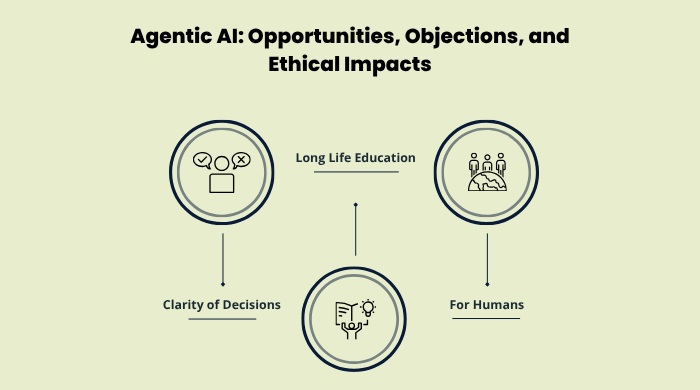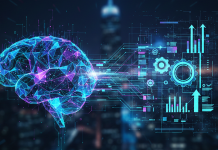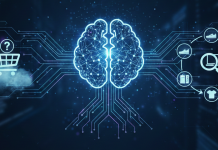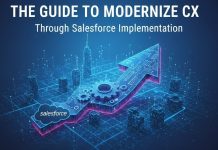For ages, medical organizations wanted a tool that doesn’t just follow instructions but anticipates needs, makes decisions, and streamlines the industry in real time. Sounds like sci-fi? It’s not anymore, especially with the introduction of agentic AI solutions.
In this post, we will cover the technical expertise behind these innovations and how they are changing the medical industry.
Understanding Agentic AI
The algorithms used in agentic AI solutions are not your typical ones. They are autonomous powerhouses as opposed to the strict rules of the AI we are familiar with.
Without continual human oversight, they plan, adjust, and carry out tasks by utilizing technologies such as machine learning and natural language processing. They are essentially digital assistants who have a doctorate in problem-solving.
Difference Between Agentic and Traditional AI
| Feature | Traditional AI | Agentic AI |
| Decision-Making | Follows strict rules | Adapts and makes autonomous decisions |
| Human Supervision | Requires constant supervision | Operates independently |
| Use Cases | Data analysis, basic automation | Complex workflows, real-time decisions |
Agentic AI Solutions in Healthcare
Healthcare is where agentic AI solutions shine the brightest. Today AI agents Solutions doesn’t just crunch numbers but actively improves patient outcomes.
These systems use multi-agent architectures, where one agent collects sensor data, another predicts flare-ups, and a third communicates with doctors—all in milliseconds. The outcome? A 50% reduction in emergency visits.
| Healthcare Application | Impact | Technology Used |
| Diagnostics | 50% reduction in emergency visits | Multi-agent systems, ML |
| Drug Discovery | $100B in annual savings by 2030 | Genomic analysis, predictive AI |
| Administrative Automation | 70% reduction in nurse admin tasks | Cloud computing, edge devices |
Artificial Intelligence Solutions in Healthcare – What are the Legal Consequences?
The healthcare industry deals with some of the most confidential information about the people it serves. Hence, the use of artificial intelligence solutions comes with a range of legal implications.
Below are some of the key areas where legal frameworks and AI intersect in the medical field.
Data Privacy and Security
Laws like (HIPAA) and GDPR set strict standards for handling personal health information.
To preserve patient privacy, agentic AI systems that have the ability to process and share data on their own must abide by these rules. As, legal action and hefty fines may result from noncompliance.
Who is Liable for Medical errors from AI
Normally, when AI systems hallucinate or make mistakes, the stakes are low. However, in healthcare, it can become the difference between life and death. So, who is liable for these errors?
Traditional liability frameworks hold healthcare professionals or physicians accountable, but AI introduces ambiguity. If the AI tool misdiagnoses a patient, responsibility could fall on the developer, the AI model, or the medical practitioner.
Courts are still trying to determine how to assign liability in these cases, as legal precedents are sparse. Developers need to test these systems rigorously, while doctors need protocols for overseeing AI outputs.
Still, there is no clear answer here and until the rules are set, adoption will be limited.
Regulatory Compliance
AI in healthcare needs to maneuver regulations, that are enforced by government entities like the FDA and others. These bodies classify certain tools as medical devices, and therefore they need thorough testing and approval before deployment.
For example, the FDA’s Software as a Medical Device framework outlines requirements for AI tools performing diagnostic or therapeutic functions. Agentic AI learns over time, and hence poses challenges for static regulatory models, as its performance evolves post-approval.
Regulatory bodies are adapting, but gaps remain, necessitating proactive compliance strategies from developers and providers.
Ethical and Bias-Related Concerns
Agentic AI tools will also incorporate the biases present in the data. For instance, if training data reflects disparities in care across socioeconomic or racial groups, the output from the systems will also have these biases, raising legal concerns under anti-discrimination laws.
Furthermore, it is legally required to inform the patients that AI is involved in their medical decision.
Ensuring transparency and addressing bias are legal necessities to avoid litigation and regulatory scrutiny.
Intellectual Property and Innovation
AI in healthcare is also making Intellectual Property (IP) rights ambiguous. Who has the rights to Agentic AI systems outputs or who owns the algorithms? Legal entities need to create a balance of protecting proprietary AI models while enabling innovation.
Today, patent laws are evolving to undertake AI-specific issues, but disagreements over licensing and ownership are likely to increase as AI grows. Healthcare organizations and developers should come to mutually benefiting terms to avoid legal battles that will cost a fortune.
The Future of Legal Frameworks
Globally, governments are working on creating AI-specific legal frameworks, so that these innovations benefit and not exploit the public.
These frameworks are made to address issues like AI transparency, testing protocols, and mandatory audits. In the meantime, medical facilities should keep tabs on the changing laws, implementing best practices to reduce the chances of legal repercussions. For this, developers, healthcare professionals, and policymakers must collaborate, so that they can serve patients equitably.
Agentic AI has immense potential for healthcare; however, Legal ramifications of these advancements must also be considered by policymakers.
Technological evolution must be accompanied by updates in legal frameworks made to govern it, to guarantee patient safety and trust remain at the forefront.
Agentic AI Solutions – Objections and Ethics Involved

When it comes to Agentic AI, there are a few issues to address:
Clarity of Decisions: AI can lack transparency, and opaque diagnostic agent is a recipe for disaster. It will reduce trust among patients, a challenge that medical facilities cannot afford.
Data Quality: Consistent, high-quality data is the backbone of AI agents Solutions and is needed to avoid garbage-in, garbage-out scenarios.
Profits Over People: Employees at medical facilities are worried about job loss as automation takes over. Moreover, there is a risk that these systems will make ethically dubious decisions, like prioritizing profits and not patient care.
Businesses must use governance frameworks to ensure accountability, embedding human-in-the-loop checks. Moreover, utilize regular audits, explainable AI models, and other methods to further align artificial intelligence services with human values, keeping trust intact.
Conclusion
From healthcare diagnosis to legal contract analysis, agentic AI solutions are rewriting the rules of innovation. Using the combination of scalability, autonomy, and accessibility AI agents Solutions and artificial intelligence services drive efficiency, making extraordinary a reality. The stats speak for themselves: billions in savings, millions of lives improved, and countless hours freed for human creativity.
Don’t wait to join the revolution. Invest in Agentic AI Development and get in touch with MoogleLabs to future-proof your business. The future is autonomous, and it’s calling your name.






